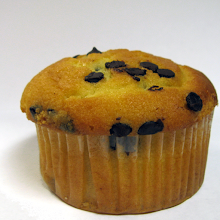I figured it's been a while since I've written a book review. So here's another literary work that I've digested and regurgitated for your pleasure.
A Separate Peace
Written by John Knowles
Genre: Tragedy
Published by Macmillan 1959.
ISBN: 978-0-743-25397-0
This story revolves around two boys, Gene and Finny and is told from the former's point of view. The setting takes place in a boarding school in New England (not located in England) during World War II. Gene and Finny are best friends. But Finny seems to be the type that can get away with anything and do everything, such as ditching school to go to the beach, breaking swimming records, and jumping out of trees. Finny would be what you call a stud, but he can't because the school he and Gene happen to be at is a men's club: no girl students.
So after having some fun, Gene has his own private Enlightenment. He begins to realize that Finny is his enemy! And there was a deeper reason why Finny is pretending to be such a good friend to him than being a good friend. Finny was trying to lower his grades so that he could be a better student!
So one day, at a tree jumping session of the Super Secret Summer Suicide Society, Gene's knee "accidentally" moves and the Finny falls out of the tree like a nut and cracks something. The only problem is Finny doesn't believe that Gene did it on purpose and Gene doesn't know if he did it on purpose, either.
...You know what? I'm tired of giving a summary. Go read it for yourself.
Rating: 8/10
The book has its boring moments, especially during the beginning of the book. But as you keep reading, you realize the theme is quite interesting. A boy secretly thinking that his best friend is trying to undermine him. I can't believe it. These people aren't even living in the 21st century where even perfect SAT scores aren't enough to get you into the college of your choice, and these boys are competing? Relax! There's plenty of jobs in the world. You could always go invent the computer and the Playstation.
What's funny is that this whole thing about secret peer competition is that my mom feels the same way. Whenever I want to do something with my friends, she'll go, "Who are your friends? Are they good students? They're just trying to get you outside so you can't study (not like I do when I'm inside) and they can get better grades than you." If the entire world were like what she believed, the world would be a rather cold place.
But the main reason I wrote this review was something deeper. This book is about homosexuals. Not that there's anything wrong with it, but Gene and Finny are gay. There, I've said it. They're gay, even though my English teacher doesn't admit it.
Evidence:
Summary on back: "What happens between two friends one summer, like war itself, banishes the innocence of these boys and their world."
Page 19: "I threw my hip against his, catching him by surprise, , and he was instantly down, definitely pleased. This was why he liked me so much. When I jumped on top of him, my knees on his chest, he couldn't ask for anything better."
Page 48: "...you can't come to the shore with just anybody and you can't come by yourself, and at this teen-age period in life the proper person is your best pal, which is what you are."
Page 69: "I was thinking about you..."
Page 102: "He looked up with a provocative grin."
Page 104: "After [my Army shirt] came off there was just my undershirt, stained with sweat. He smiled at it for a while and then said, as he eaved himself out of the chair, 'There. You should have worn that all day, just that. That has real taste. The rest of your outfit was just gilding that lily of a sweat shirt.'"
Page 107: "Finny hobbled over to the dresser and took up his soap dish. 'I'm first in the shower,' he said.
'You can't get that cast wet, can you?' asked Brinker.
'No, I'll keep it outside the curtain."
'I'll help,' said Brinker.
Page 108: "Phineas was shocked at the idea of my leaving. In some way he needed me. He needed me ... He wanted me around."
Page 113: "No locker could have more pungent air than Devon's; sweat predominated, but it was richly mingled with smells of paraffin and singed rubber, of soaked wool and liniment, and for those who could interpret it, of exhaustion, lost hope and triumph and bodies battling against each other. I thought it anything but a bad smell. It was preeminently the smell of the human body after it had been used to the limit, such a smell as has meaning and poignance for any athlete, just as it has for any lover.
Page 171: "'Let's make a double jump,' because I thought if we went together it would be something that had never been done before, holding hands in a jump..."
--
QED. For more proof, well, you just have to read the book for yourself. Rather recommended, but not as much action as I would like. Really deep psychological side-effects though.


